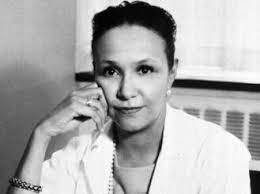
Woman's History Month Feature: Jane Cooke Wright - Changing the Face of Medicine
Share

The month of March signifies the beginning of Women’s history Month. In honor of this occasion, we will be featuring an outstanding woman from history, highlighting the amazing accomplishments of women in our nation’s storied past.
Our final installment features Dr. Jane Cooke Wright, a pioneer in cancer research and the first woman elected president of the New York Cancer Society.
Dr. Cooke Wright was the daughter of Dr. Louis Thompson Wright, one the first African-American graduates of Harvard Medical School. She followed in her father's footsteps, graduating from NY Medical College in 1945. She completed her medical residency at Harlem Hospital in 1948, during which time she also had her first child.
Around 1949, Dr. Cooke Wright and her father began significant research into chemotherapy, which was still an experimental treatment at the time. They found that the new chemical treatment was effective on treating leukemia and cancers of the lymphatic system. After her father's death in 1952, Dr. Cooke Wright was appointed head of the Cancer Research Foundation at the age of 33.

She would go on to achieve further accolades and esteemed positions at hospitals, including serving as director of cancer research therapy at NYU Medical Center, head of the New York Medical College Cancer Chemotherapy Department, and being appointed by President Lydon B. Johnson to the Commission on Heart Disease, Cancer and Stroke. By the late 1960's, Dr. Cooke Wright was the highest ranking African-American woman at a medical facility in the country.
Dr. Cooke Wright's research and work revolutionized the way we research and treat heart disease, cancer and stroke. She helped establish national networks of treatment centers, an innovation that likely saved millions of lives. She was a tremendous pioneer in the medical field and her impact is still felt today.
